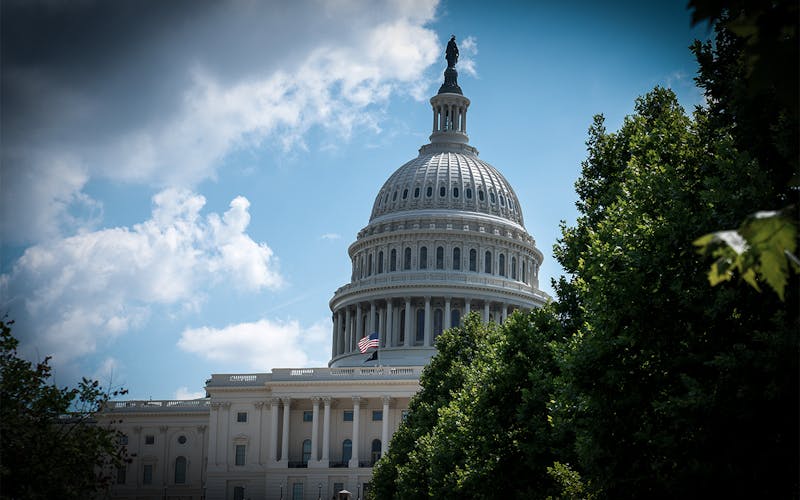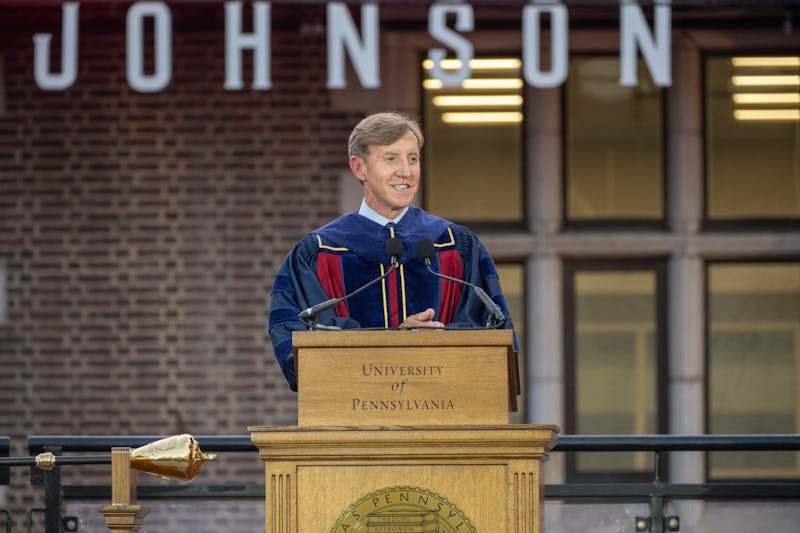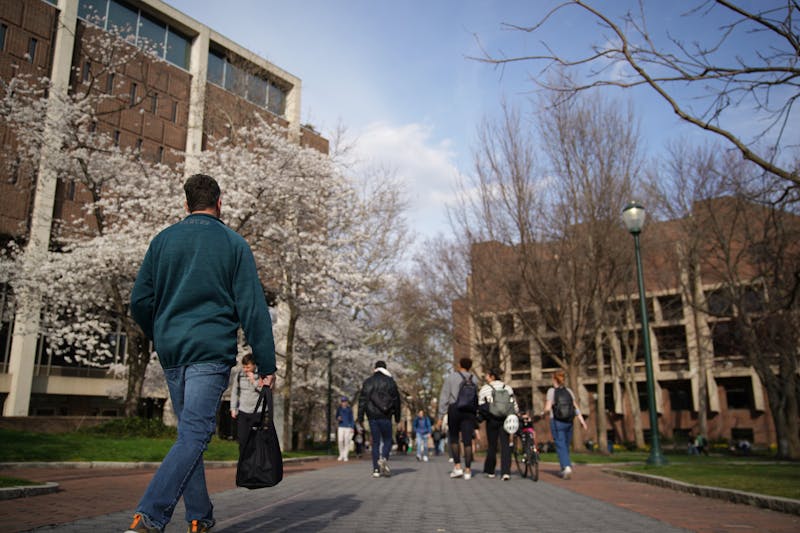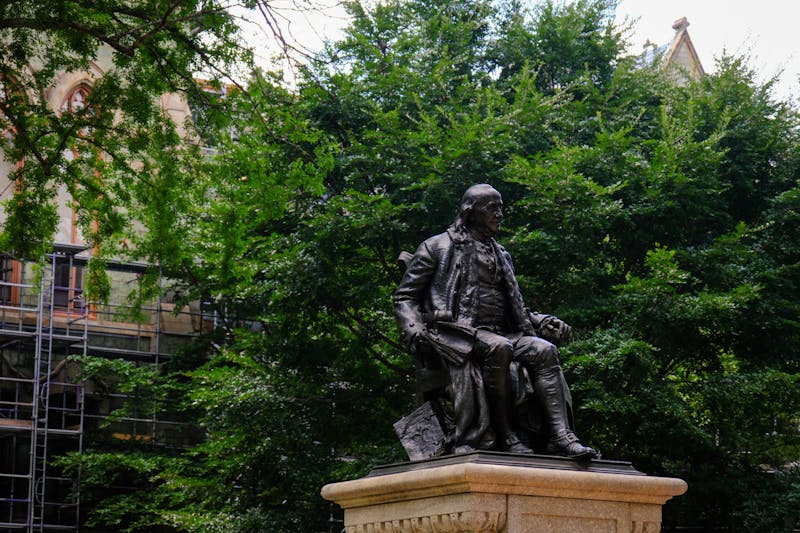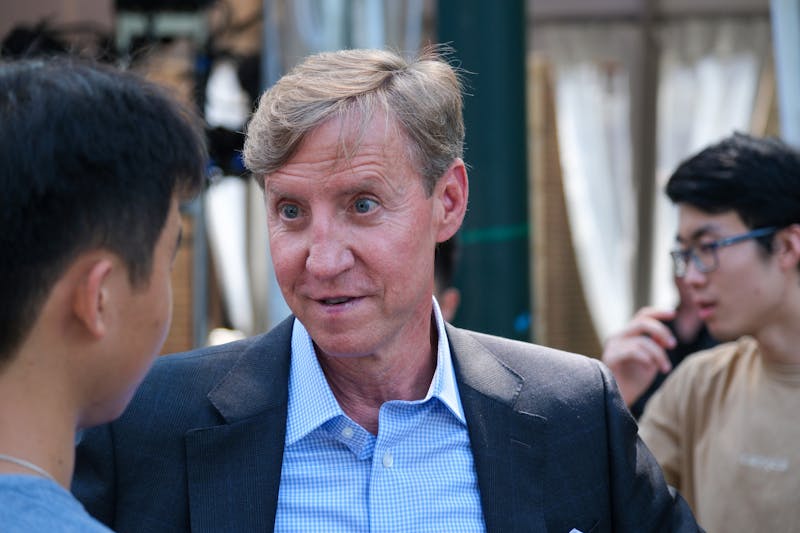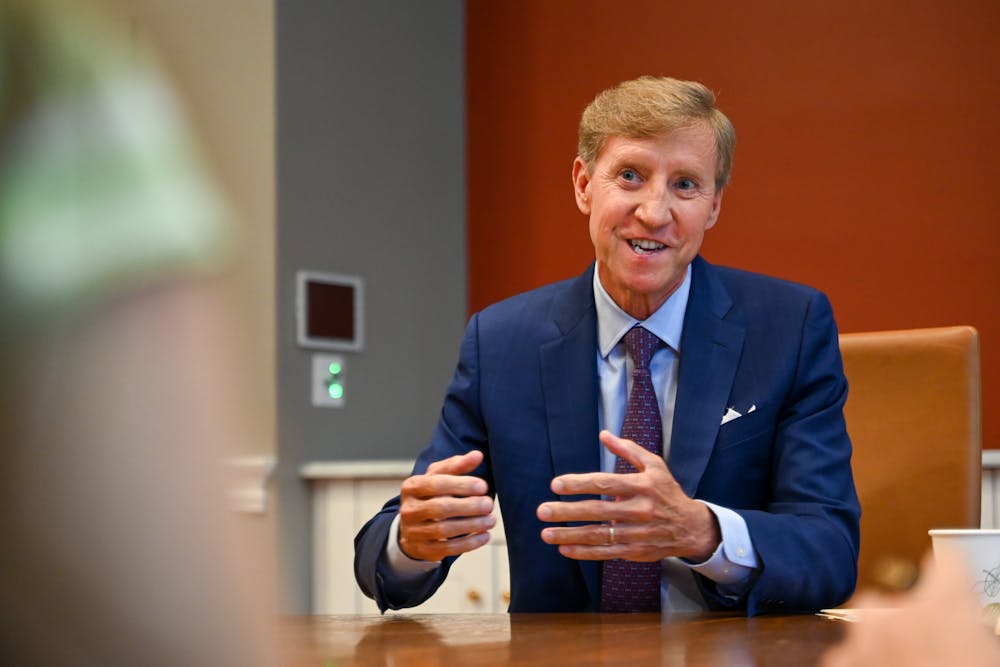
For the first time since campus turmoil erupted last fall, a Penn president sat down for an interview with The Daily Pennsylvanian to address the tumult of the past year and articulate the University's path forward.
Interim President Larry Jameson declined to go into detail on several of the controversies that have placed Penn under political and legal scrutiny — spanning from the Palestine Writes Literature Festival nearly a year ago to the Gaza Solidarity Encampment last spring. In conversation with the DP, he distinguished himself from former Penn President Liz Magill while sharing a vision of his interim position that involves addressing threats to academic freedom, reenergizing a demoralized donor base concerned by antisemitism, and discouraging students from self-censoring their viewpoints in class for fear of judgment.
Nine months after being named to the job upon Magill's resignation, the former Perelman School of Medicine dean is likely to become the University's longest-serving interim president, after he agreed to stay on through the 2025-26 academic year. And while the temporary nature of the role may have turned others away from pursuing significant change, Jameson said that he "totally" feels empowered to take on decision making and that he wants to "make things happen."
“I've always had a philosophy that you lead for the moment and don't tread water,” Jameson said. “It's really important, given the scale and complexity of the University of Pennsylvania, to keep things moving right along.”
The University is facing an especially complex moment, with Jameson squarely in the center of confronting scrutiny to how Penn approaches academic freedom and discourse on the Israel-Hamas war. Pro-Palestinian faculty and students have said they feel silenced by Penn, while their pro-Israeli counterparts have expressed concern about incidents of antisemitism on campus.
Jameson said he believes there is a difference between "academic freedom as it relates to one's area of expertise and research” and “personal opinions that everyone holds," which are protected by the First Amendment.
"It's important to be clear when you're speaking as an individual and you're speaking on behalf of the institution or as an expert in a particular field or discipline," he said, further affirming his belief that the University should “aggressively support academic freedom."
His comments came one day before he announced that the University would be "quieting" its voice and refraining from statements on local and global events, in part to amplify faculty voices.
Concerns about academic freedom have been fueled by the Penn administration's measures against pro-Palestinian community members over the past year, including the disciplinary measures taken against participants in the Gaza Solidarity Encampment and temporary open expression guidelines which outlaw many of the tactics used by activists.
While the pro-Palestinian encampment on College Green last spring was the defining controversy of Jameson’s first semester, he declined to comment extensively on it — though he suggested he stood by his characterizations of the demonstration as violent and a threat, at times, to campus safety, noting that he observed the vandalism of the Ben Franklin statue and “many peaceful activities” outside his office window.
"[The encampment is] being scrutinized by inquiries, and it's probably not wise for us to take on that particular topic," he said.
Jameson also expressed his commitment to regaining donor support. The University has faced retaliation over the past year from influential donors, including Apollo Global Management CEO and 1984 Wharton graduate Marc Rowan, who alleged the administration has failed to adequately respond to antisemitism.
Jameson told the DP he has held dozens of individual meetings — as well as small and large events — with the goal of hearing donors' varying points of view.
"[Donors] want to come back to the University of Pennsylvania by and large, they love this institution, or they probably wouldn't be speaking out and expressing their views," Jameson said. "... I think that the momentum is shifting in a very good direction, but it takes time."
Jameson also touched on issues — and questions — he might have handled differently than his predecessor Magill, whose term ended swiftly after her performance in a congressional hearing drew national backlash.
At the Dec. 6, 2023 hearing on campus antisemitism initiated by the House of Representatives Committee on Education and the Workforce, Rep. Elise Stefanik (R-N.Y.) repeatedly asked Magill if calls for the genocide of Jewish people violated Penn’s policies or code of conduct.
“If the speech turns into conduct, it can be harassment,” Magill told Stefanik, later calling it a "context-dependent decision." Magill’s legalistic response to this question added fuel to the growing fire of donors, students, and alumni calling for her resignation.
When asked how he would have responded to the same question, Jameson pointed to his training as a physician, which he said drives him to respond with empathy and less “based on strict policy.”
"I find any conflict, war, cause of death, horrifying and unacceptable, whether it's a shooting in Philadelphia or conflict overseas," Jameson said. "I've been a pacifist most of my life, and will hopefully remain that way."
In a written statement after the DP asked Jameson to clarify whether such calls violate Penn's code of conduct, the interim president wrote that “any call for genocide directed at anyone in our community, no matter what their ethnicity or religious affiliation, would violate our policies.”
Editor's note: This article has been updated to clarify Jameson's remarks about his characterizations of the Gaza Solidarity Encampment.
The Daily Pennsylvanian is an independent, student-run newspaper. Please consider making a donation to support the coverage that shapes the University. Your generosity ensures a future of strong journalism at Penn.
Donate







